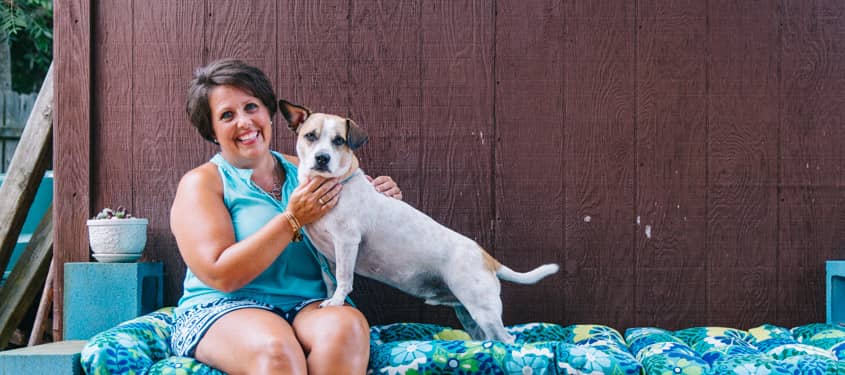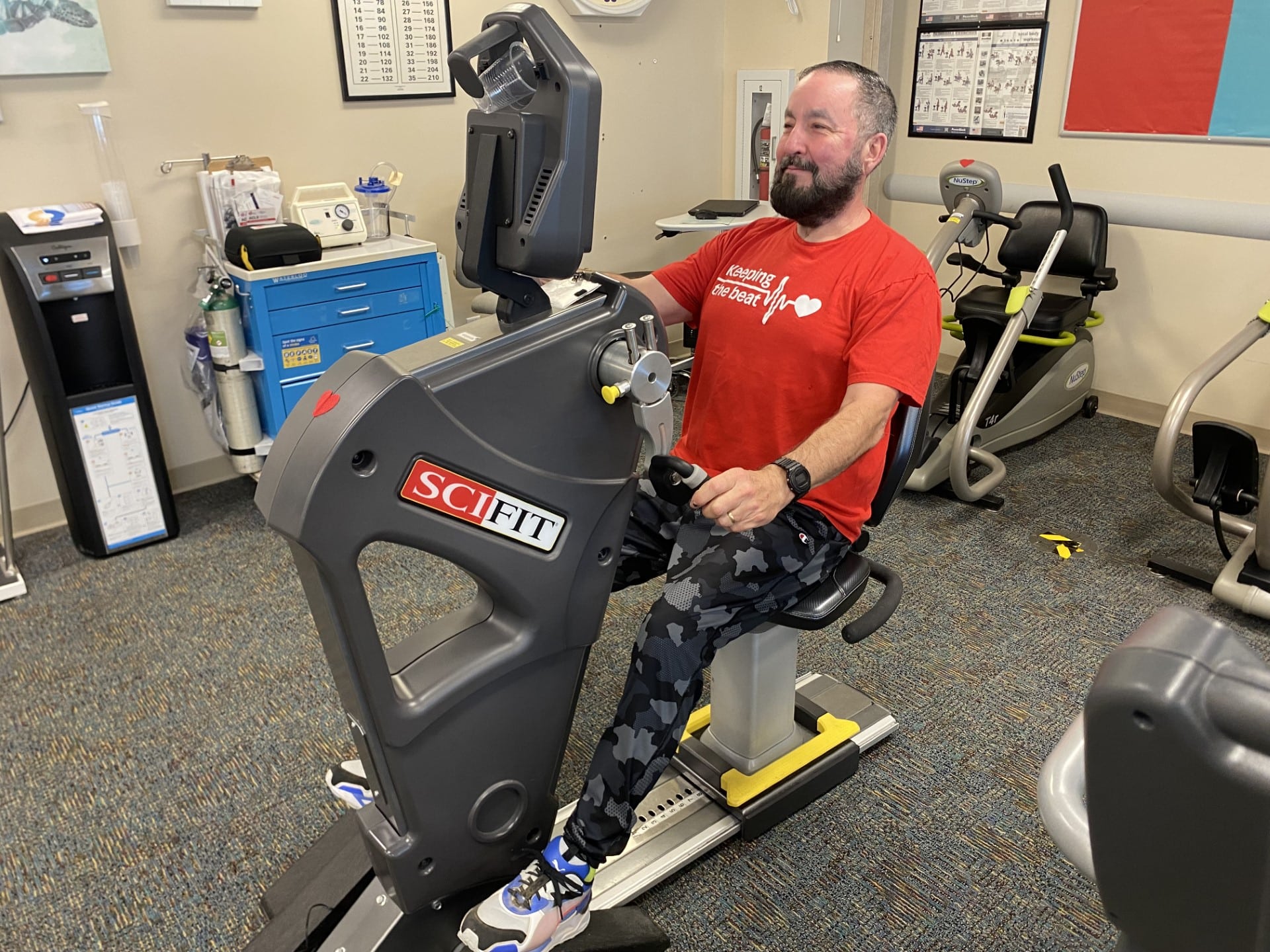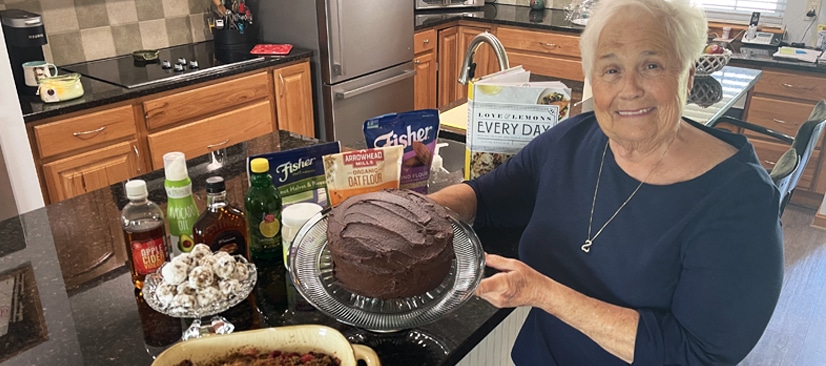An Illinois native who’s lived all over, Meri Jones came to the Outer Banks several years ago when her husband retired from the Marine Corps. After about a year as a part-time caterer for The Outer Banks Hospital, Jones applied for an administrative secretary position and got the job. Things were going well, until a routine checkup led to some bad news: Jones was severely anemic. More tests led to a colonoscopy, which revealed a large tumor. Jones spent her 43rd birthday having the tumor removed, along with 15 inches of her colon and 24 lymph nodes.
Jones’ doctor had been more surprised to find cancer than Jones was. Jones wasn’t having any symptoms except for being tired — and what working parent of three isn’t tired? It could be a bleeding ulcer, or something else not too serious. But Jones was mentally preparing herself for the worst. “When my doctor came back after the colonoscopy, she didn’t have to say it. I could tell by the look on her face,” says Jones. “She sat on the foot of my bed, and she grabbed my hand and said, ‘There’s a tumor.
The news hit Jones hard for a minute, then her attitude turned practical. “I think in a way, living in the military lifestyle for 20 years kind of helped prepare me for that — that things were always going to change…you just kind of take those ebbs and flows and go on with it,” says Jones. Plus, because of her position, Jones was already familiar with the hospital’s doctors and numerous resources, and that helped her outlook stay positive.
Jones is quick to recommend the hospital’s nurse navigators as an important resource for anyone in the community facing a cancer diagnosis. “You don’t have to have treatment [at the Outer Banks Hospital] to utilize their services,” Jones says. “They’ll help you set up appointments; they kind of monitor your progress and check in with you. They’re a wealth of information.” When Jones had a particularly bad reaction to her first chemotherapy treatment, her nurse navigator was her first call. “I said, ‘Donna, this isn’t right,’ and she immediately got me back into the hospital,” Jones says. “It’s almost like you have your own personal nurse, even though they provide that service for everybody.”
Greatly appreciative of the volunteers who brought meals, Jones also relied heavily on the staff at the Ambulatory Medical Unit and the Radiation Therapy Center to get her through her treatments — and the entire experience. “Those nurses and the radiologists there…were my biggest cheerleaders,” says Jones. She describes how the staff would go above and beyond, making sure she was comfortable or helping distract another patient with a favorite game. “That personalization…you don’t get at larger facilities. We’re kind of like a little family.”
Completely finished with treatment, Jones is now happily closing the chapter on cancer as she and her husband prepare to relocate again — this time to Stafford, VA. But she’s grateful that they ended up on the Outer Banks when they did. “I can see that we were put here for a very valid reason — and I can’t imagine having my care anywhere else,” she says. “I couldn’t say more wonderful things about The Outer Banks Hospital. This move to Virginia has come up very unexpectedly, so that just cemented that I was in the right place at the right time.”




